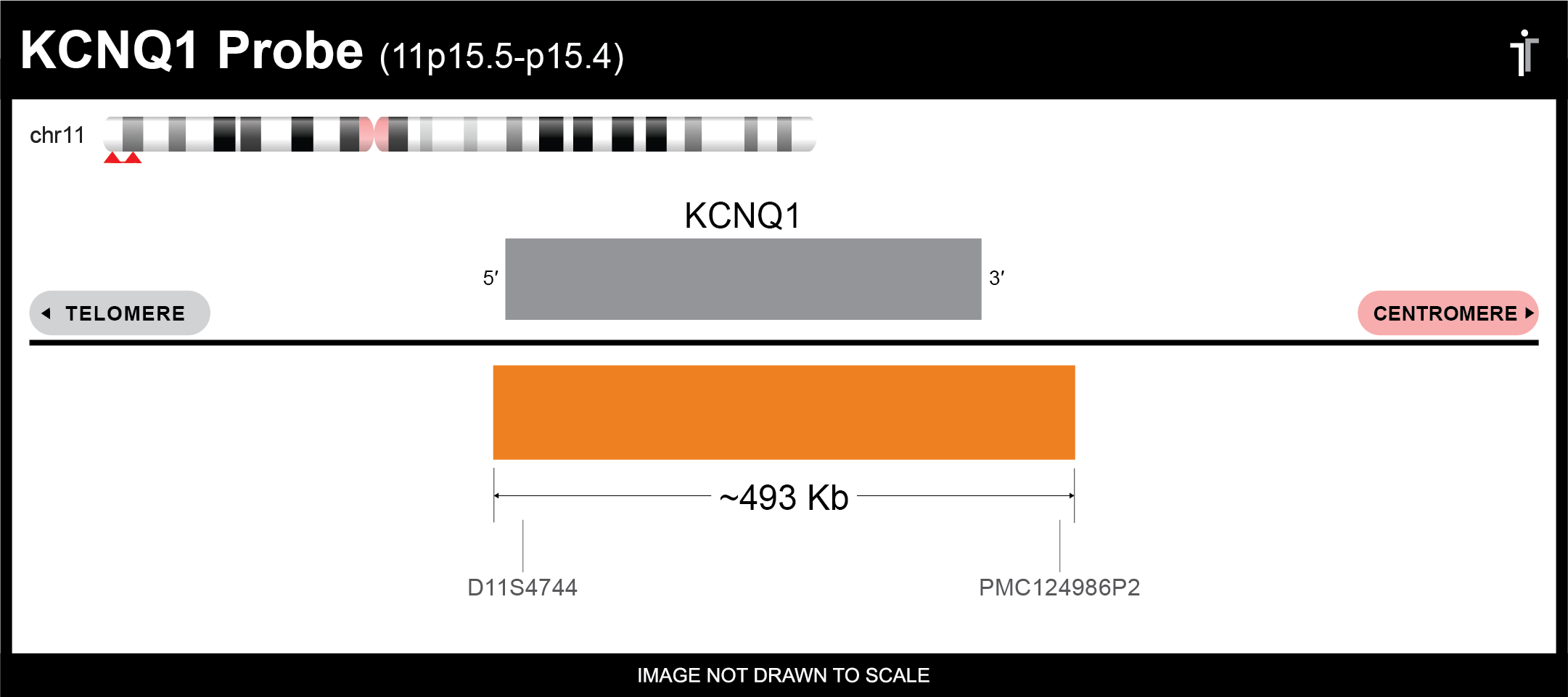KCNQ1 FISH Probe
Our KCNQ1 probe is designed to detect KCNQ1 amplifications and deletions. The probe comes labeled in orange, but can be customized to meet your needs.

** This product is for in vitro and research use only. This product is not intended for diagnostic use.

| SKU | Test Kits | Buffer | Dye Color | Order Now |
|---|---|---|---|---|
| KCNQ1-20-OR (Standard Design) | 20 (40 μL) | 200 μL |

|
|
| KCNQ1-20-RE | 20 (40 μL) | 200 μL |

|
|
| KCNQ1-20-AQ | 20 (40 μL) | 200 μL |

|
|
| KCNQ1-20-GR | 20 (40 μL) | 200 μL |

|
|
| KCNQ1-20-GO | 20 (40 μL) | 200 μL |

|
Gene Summary
This gene encodes a voltage-gated potassium channel required for repolarization phase of the cardiac action potential. This protein can form heteromultimers with two other potassium channel proteins, KCNE1 and KCNE3. Mutations in this gene are associated with hereditary long QT syndrome 1 (also known as Romano-Ward syndrome), Jervell and Lange-Nielsen syndrome, and familial atrial fibrillation. This gene exhibits tissue-specific imprinting, with preferential expression from the maternal allele in some tissues, and biallelic expression in others. This gene is located in a region of chromosome 11 amongst other imprinted genes that are associated with Beckwith-Wiedemann syndrome (BWS), and itself has been shown to be disrupted by chromosomal rearrangements in patients with BWS. Alternatively spliced transcript variants have been found for this gene. [provided by RefSeq, Aug 2011]
Gene Details
Gene Symbol: KCNQ1
Gene Name: Potassium Voltage-gated Channel Subfamily Q Member 1
Chromosome: CHR11: 2466220-2870340
Locus: 11p15.5-p15.4
FISH Probe Protocols
| Protocol, Procedure, or Form Name | Last Modified | Download |
|---|